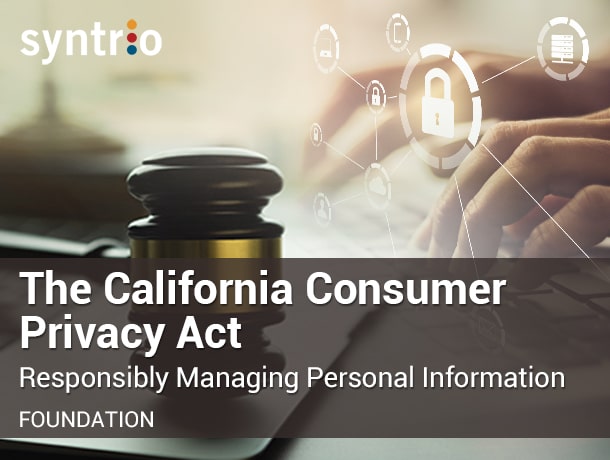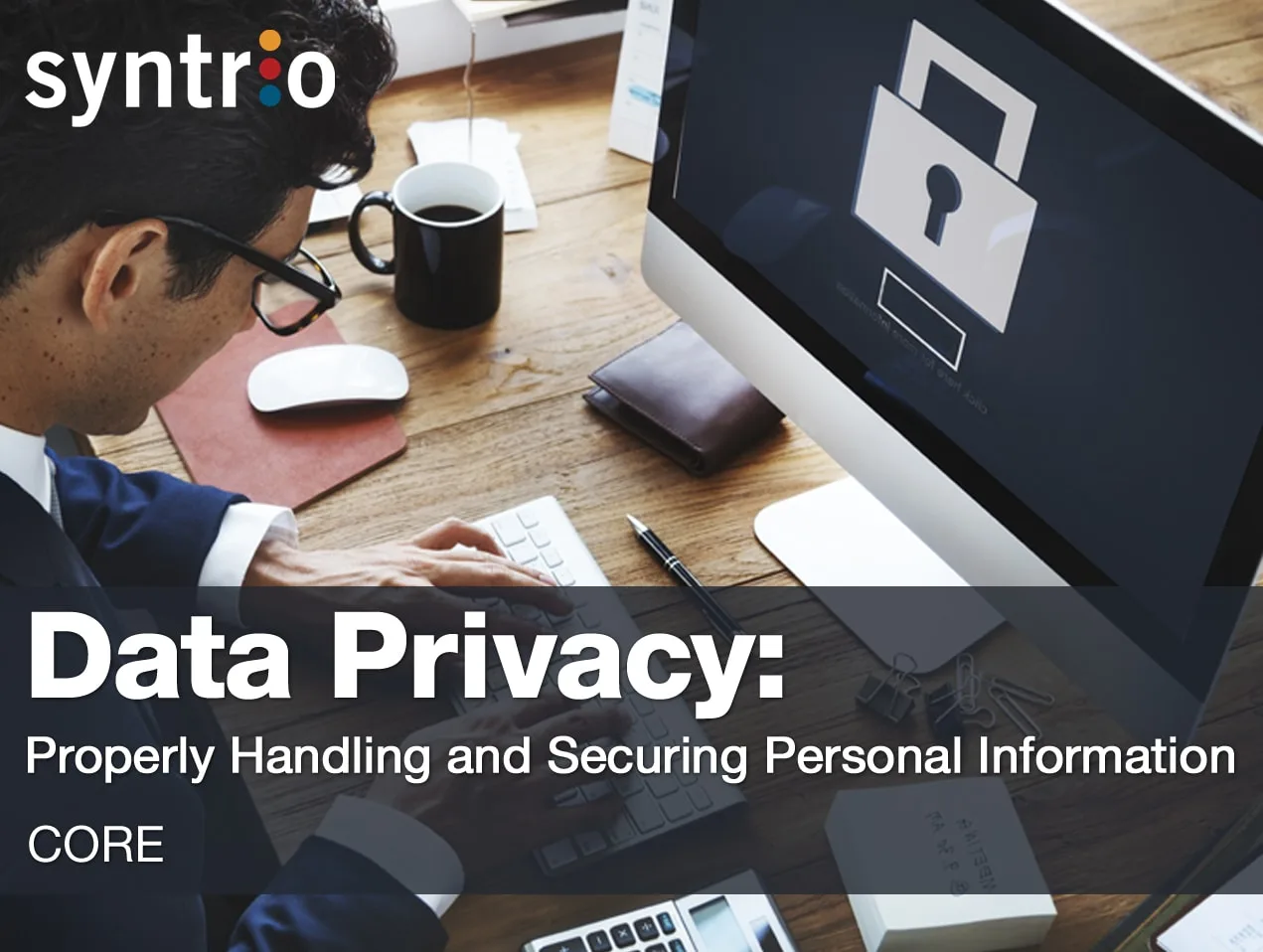SYNTRIO COURSE LIBRARY – CYBERSECURITY
Protect Your Business: Essential Cybersecurity Basics
Your workforce will learn to:
- Characterize the current cyber risk environment.
- Recognize common threats to systems and data.
- Identify measures to reduce risks of physical and cyber threats.
- Describe risks and mitigation strategies for working from home or public places, if approved to do so.
Get Started Today!
Potential risks for workplaces where employees fail to use good cybersecurity practices can be severe.
These include data breaches, financial loss, reputational damage, operational disruption, legal and regulatory consequences, and intellectual property theft. Do your employees know how to recognize cybersecurity threats, and what actions must be taken to protect your organization?
Cybersecurity training offers a high return on investment by reducing the risk of data breaches and cyberattacks, protecting sensitive information, and safeguarding the business’s reputation and financial stability. In today’s highly Interconnected world, it would be foolish not to provide ongoing cybersecurity awareness and tips.

Introducing Syntrio’s
Cybersecurity Basics
General | Duration: 27 minutes
With growing threats to electronic systems and programs, networks and servers, computers, mobile devices, and data, it is imperative that employees understand and use best security practices. This training describes common attack methods and provides recommendations to thwart them. It defines how to protect data, including while working away from our facilities.
Combine the above training with other Syntrio titles for a robust curriculum:
California Consumer Privacy Act
Given the growing speed, capacity, and uses of new technologies in collecting and processing personal information, this course addresses the challenges businesses face in complying with emerging data privacy standards. It addresses the types of businesses that must comply with the California Consumer Privacy Act (CCPA), consumer rights regarding personal information about them, and steps businesses must take to comply with these rights and related standards, such as working with vendors and other third parties. This course is updated with amendments of the Consumer Privacy Rights Act (CPRA).

Data Privacy: Managing the Security and Proper Use of Personal Information (Core Employee)
Personal information can be used to identify a specific individual. It can belong to customers, consumers, Internet users, employees, suppliers, business partners, and third parties. Certain personal information is often considered private under the law. Therefore, organizations and their employees must safeguard any personal information in their care. Here, learners explore the many considerations regarding handling personal information and the practical steps to take to protect it from theft and misuse.

Data Privacy for Government Contractors
This training provides an overview of data privacy requirements for U.S. Government contractors and subcontractors. The Privacy Act of 1974 applies to federal government contractors who operate systems of records containing personal information. This training defines systems of records and personally identifiable information, or PII. It describes practices agencies and contractors must observe to protect systems of records and PII.

Anti-Phishing Essentials
As phishing attacks continue to dominate the threat landscape, making a solid foundation of anti-phishing a necessity for every company. With a new look-and-feel, refreshed modules, and updated knowledge check and quiz questions, the new Anti-Phishing Essentials course for 2004 provides a comprehensive overview of the latest phishing tactics and hacker strategies, including ransomware, spear phishing, and Business Email Compromise.

InfoSec Best Practices Module: Safe Social Networking
Social networks are a great tool for promoting business, but they make it just as easy to share sensitive or damaging information. This course teaches how to use social networks safely. Specifically, it teaches how to avoid the most common risky behaviors on social networks and which privacy settings to use on social networks.

Syntrio Training Features
Modular: Foundation courses comprise modules; most topics include microlearning versions.
Engagement-Focused: Training garners learners’ attention and interest through interactive functionality and multimedia-rich, contemporary visual design.
Learning-centric: Learning centers around concepts and principles, uses situation-based, experiential learning approaches, balances risk-based and affirmative contexts, and promotes more outstanding learner competencies.
Dynamic Construction: Courses are built with HTML5 responsive design for desktops, laptops, tablets, and smartphones. Accessibility compliant (US 508 and WCAG 2 standards). Available in SCORM and AICC configurations.
